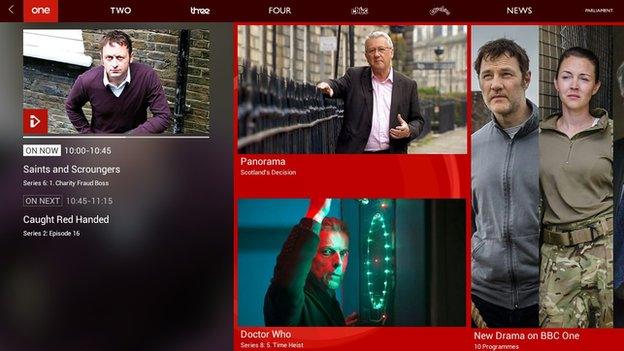Netflix and Amazon face quota on EU-made content
- Published
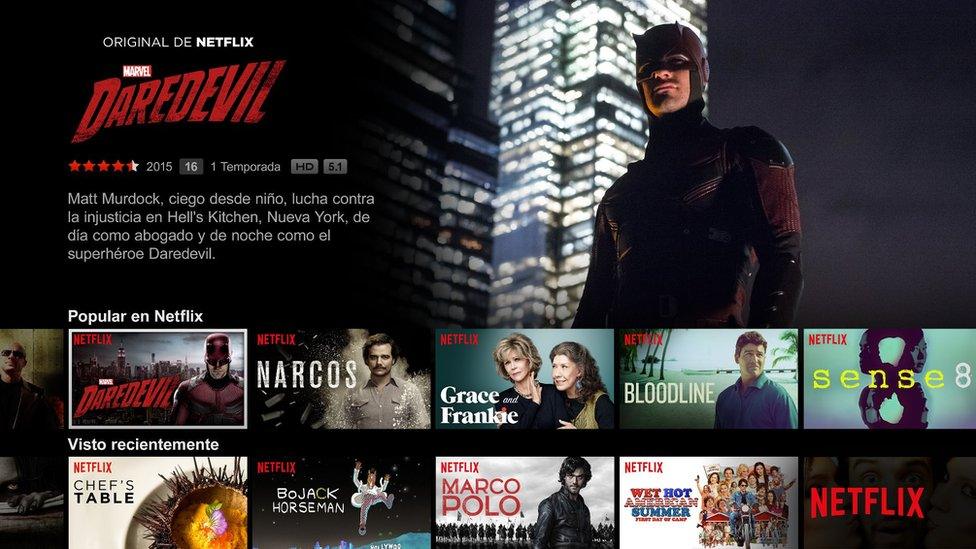
The European Commission wants greater prominence given to locally made content
On-demand video streaming services face a call that at least 20% of the catalogues they offer to EU subscribers should be made locally.
The European Commission has also proposed that the programming must be given "good visibility".
It says there are cultural benefits to the move, which would affect Netflix and Amazon Prime Video.
However, one expert suggested the new rules might not have as much impact on what was on offer as intended.
The call is part of a proposed update to the 28-nation bloc's Audiovisual Media Services directive.
Other measures include:
a requirement that video-sharing platforms including YouTube adopt "better" measures to protect minors from violent content and people of all ages from clips that act as an incitement to hatred
a call for the creation of new symbols or phrases that would warn viewers of potentially harmful video content - such as bad language, sex or drugs - that would be used across the EU by both broadcasters and internet-based platforms
the ability for TV broadcasters to have more flexibility as to when they show adverts
"The way we watch TV or videos may have changed, but our values don't" said Gunther Oettinger, commissioner for the digital economy.
One industry watcher said that many of the online platforms already met the proposed quota requirement because they carried so much BBC and other British-made material.
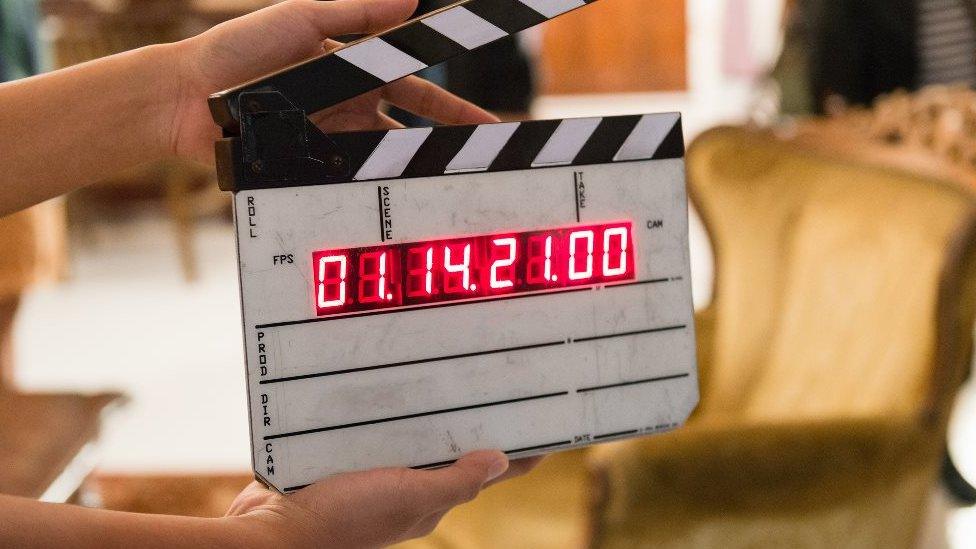
The European Commission says there would be cultural benefits to having the quota
But even if the UK leaves the EU, and its programmes no longer counted, it would not necessarily mean lots of additional content from other countries would have to be commissioned as a result.
"This is driven by the core problem that the EU identified 40 years ago, that the Hollywood studios and other US producers dominate global box office and broadcasting because they have scale that cannot be achieved in a fragmented EU," said Alice Enders, from the media consultancy Enders Analysis.
"It does send out an important signal to Netflix and others.
"But let's face it, the online services could meet the 20% quota by loading up themselves with lots of rubbish French, Italian, Spanish and whatever content.
"Or they could simply remove some of their lesser-watched non-EU material."
Why does the European Commission say it wants the quota?
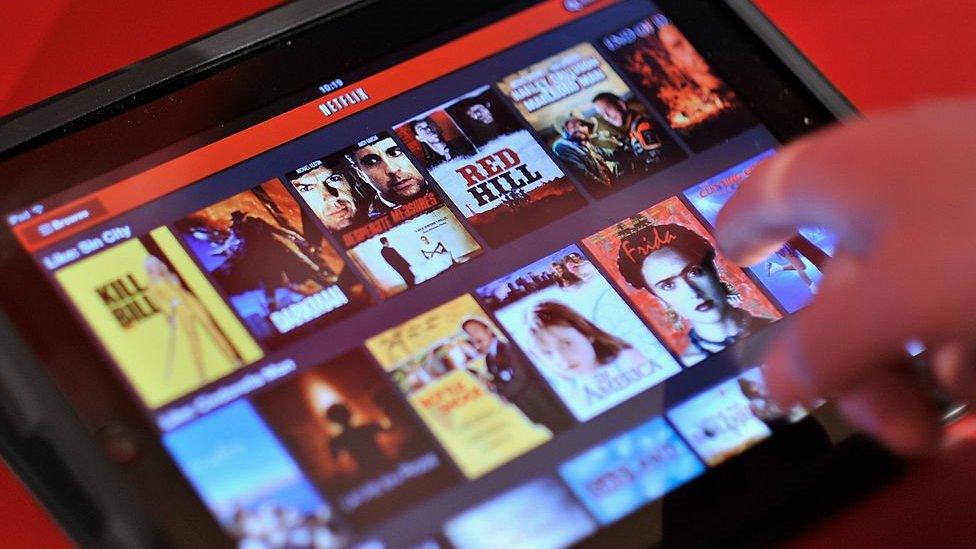
Viewing habits are changing as on-demand services challenge the traditional broadcasters
EU rules already oblige TV broadcasters to:
invest about 20% of their revenues into making or commissioning original content
to spend at least 50% of their time showing European works, including material made in their own country
But since audiences are spending increasing amounts of their time watching on-demand services, the EU civil service thinks the new measure is required.
"This will have a positive impact on cultural diversity and bring more opportunities for European creators," it says, external.
How would a quota system work?
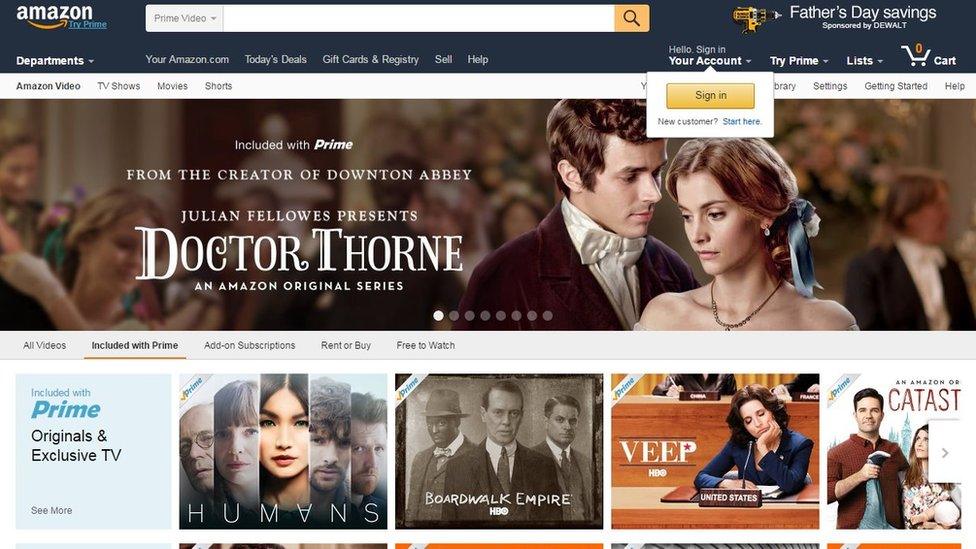
Amazon offers its Prime Video service to Germany and the UK
On-demand platforms would have to ensure at least a 20% of the catalogue they offered to EU subscribers was made up of "European works" and that this content was given prominence on viewers' screens.
This would not be enforced centrally from Brussels.
Rather, individual countries would have the right to demand the likes of Netflix and Amazon invest in local productions and/or buy the rights to EU-made shows and films.
The companies could be given the option of either making the investments themselves or paying a levy into a fund that would then be shared out.
The commission says the platforms could make sure the content was visible by making it easy for users to search for European-made productions, ensuring it appeared on their front pages and streaming trailers.
Wouldn't that make it hard for niche services to operate?
The European Commission acknowledges there could be a problem for smaller providers.
For example, it would be hard for Crunchyroll, a service that specialises in Japanese anime, or KorTV, which streams South Korean content, to meet the requirement.
As a result, it is proposed a mandatory exception be made for companies with "a low turnover and low audiences, as well as small and micro-enterprises".
What do Netflix and Amazon make of this?
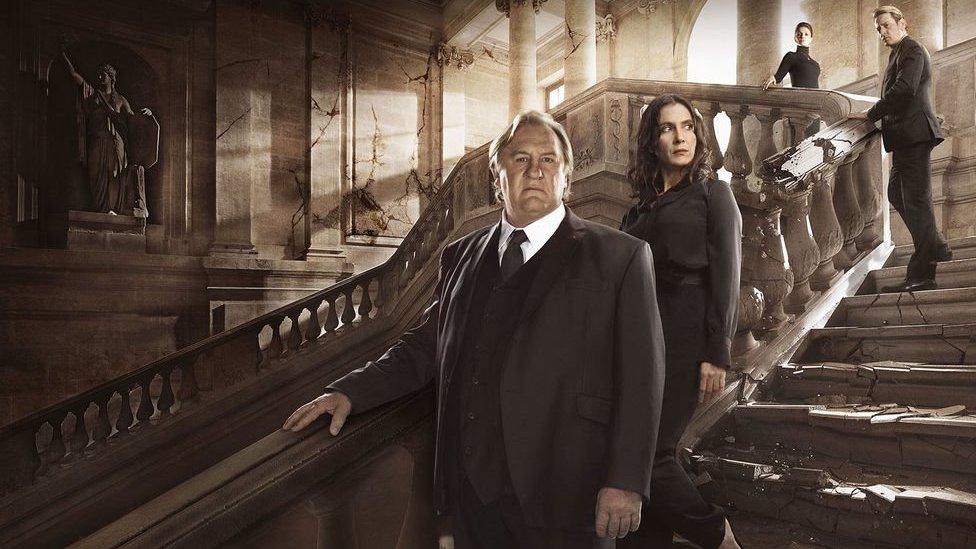
Netflix's Marseille joined its catalogue earlier this month
Netflix said it was against quotas, but was already investing in local content.
"Our members around the world love European programming, that's why our investment in European programming, including Netflix original titles created in Europe, is growing," said a spokesman.
The company recently started streaming Marseille, its first European-produced "original" TV series.
And in November, it will premiere The Crown, a series about Queen Elizabeth II, which was filmed in the UK.
It has also formed partnerships with European broadcasters to co-produce other shows.
It is also worth noting that the Commission acknowledges 21% of the films offered by Netflix are currently classed as being from the EU.
Amazon has yet to comment.
The company would potentially be less affected as, at present, Germany, Austria and the UK are the only EU countries where its video-streaming subscription service, Prime Video, is available.
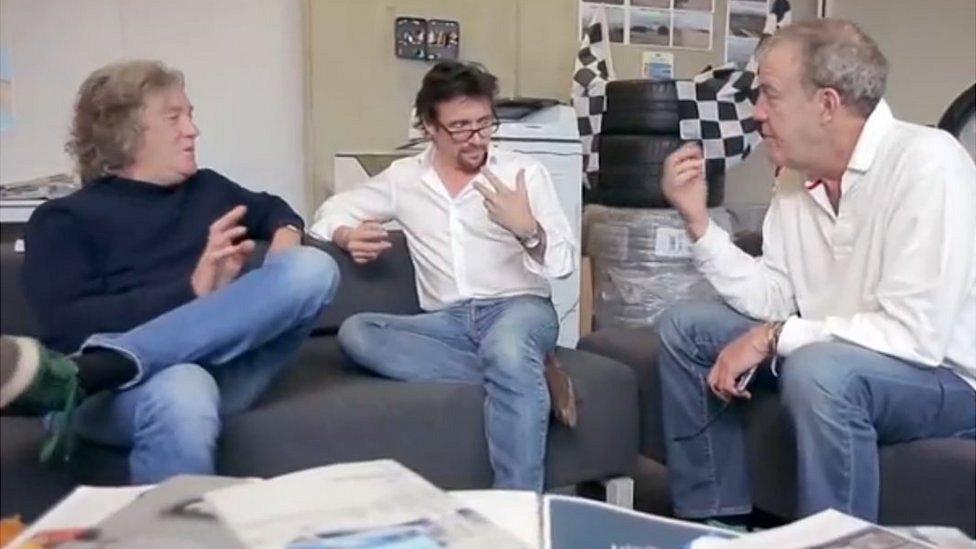
Amazon's The Grand Tour is its most costly original production to date
But it is already making local shows, including the drama series Ripper Street, the forthcoming The Grand Tour - a car-themed show featuring the former hosts of Top Gear - and Wanted, a German-language thriller.
What happens next?
The revised directive still needs to go before the European Parliament and the Council of Ministers.
And even if it is adopted, local regulators would still have to enforce it.
Existing requirements affecting broadcasters are not always strictly adhered to.
- Published16 May 2016
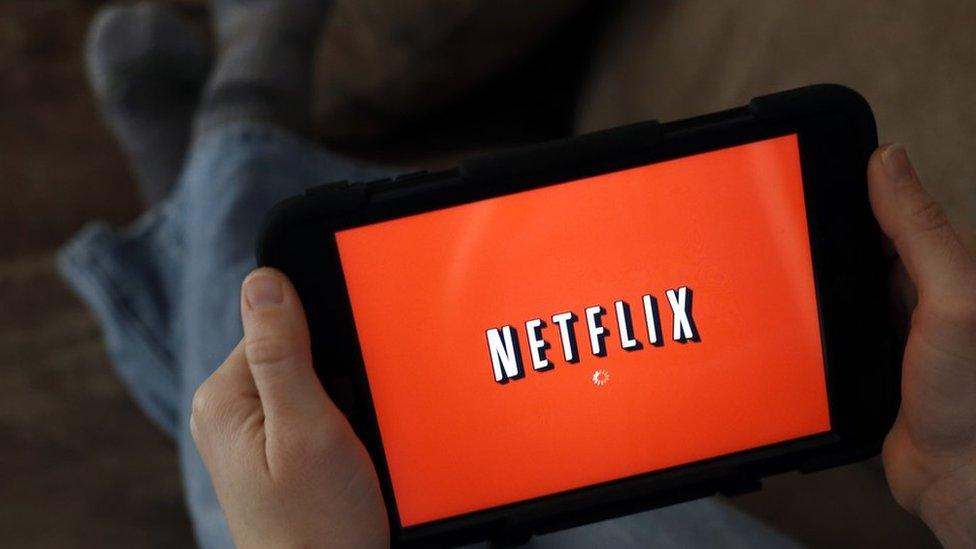
- Published15 January 2016
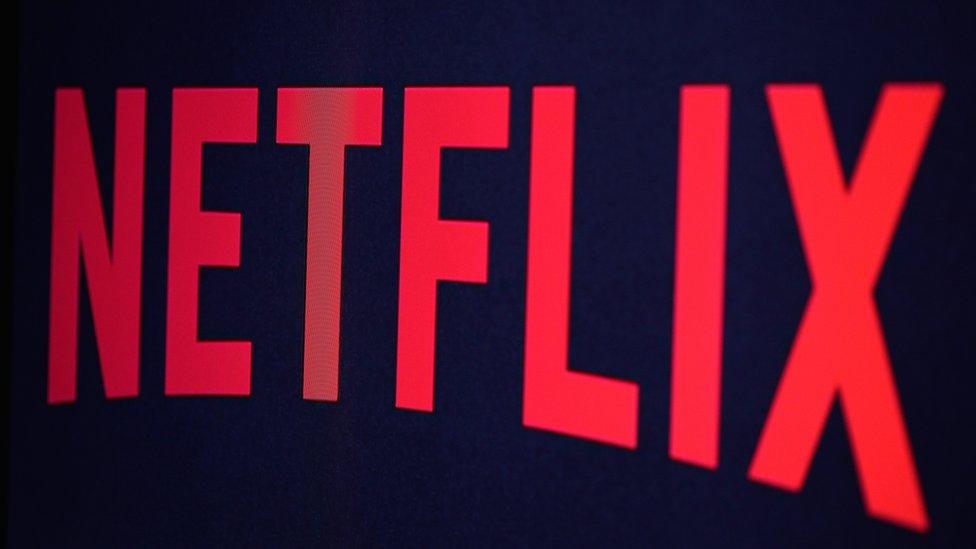
- Published6 May 2015
